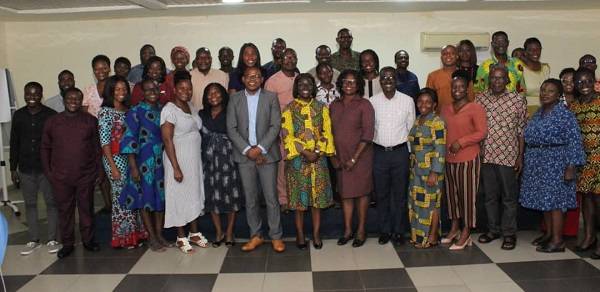
Only 205 females representing 19.6 per cent of women in informal settlements (slums) in Accra are currently using modern contraceptives, a new study by the University of Ghana’s School of Public Health, has revealed.
The study, dubbed “Achieving universal access to family planning: Preferences for contraceptive delivery models in Ghana’s informal settlements,” also showed that out of the 19.6 per cent, majority used emergency contraceptive pills.
It was aimed at supporting research and policy engagement on fertility and family planning (FP) in urban development and likewise to identify low-cost and acceptable interventions or models for delivering quality family planning and contraceptive services to slum dwellers in Accra.
The study engaged one-thousand and eighty-three sexually active respondents from four informal settlements in Accra-Nima, Old Fadama, Agbogbloshie and Chorkor between May 2021 and October 2021 and was funded by the International Union for the Scientific Study of Population as part of Bill & Melinda Gates Foundation grants.
The Principal Investigator for the study, Dr John K. Ganle, presenting the findings of the study last Thursday said majority of the women in slum communities who used contraception used an emergency contraceptive pill, citing Postinor-2, Lydia Post Pill, NorLevo, and Pregnonas the major contraception used by women in slum communities.
He said many of the sexually active women in slum communities did not like the long-acting FP methods or contraceptives.
Dr Ganle also indicated that many of the respondents who wanted to use the hospital for FP services, preferred services in private hospitals but perceived those services to be high, hence resorting to over-the -counter medicine sellers.
He disclosed that although awareness about contraception among women in informal settlements was high as compared to the awareness of the general population, adoption was quite low.
He said to increase awareness and adoption, the Ministry of Health (MoH) and Ghana Health Service (GHS) needed to collaborate with the private sector to reduce the cost of FP and contraceptive services offered by private providers in urban slums.
“That include persuading private providers to enroll under the National Health Insurance Scheme (NHIS), to reduce the high out-of-pocket payment women in informal settlement face when accessing services from private providers,” he suggested.
Dr Ganle, who is also a Senior Lecturer at the department advised MoH and GHS to improve the quality of FP and contraceptive services provided in public health facilities.
Similarly, he called on the government and donor agencies to increase the supply of free or subsidised family planning or contraceptive commodities and services to public health facilities especially in urban slums in Ghana.
This, he noted, will help to increase access and adoption of FP or contraceptive commodities by the sexually active residents in slum communities.
Dr Ganle said poor access to FP or contraceptive services in Ghana’s urban slums could negatively affect overall sustainable urban development in cities such as Accra.
“Not only can this result in poor health outcomes for slum communities but also it could exacerbate inequalities and potentially hinder efforts to attain both universal FP coverage and sustainable urban development as envisaged under SDG 2,” he pointed out.
BY BENEDICTA GYIMAAH FOLLEY







